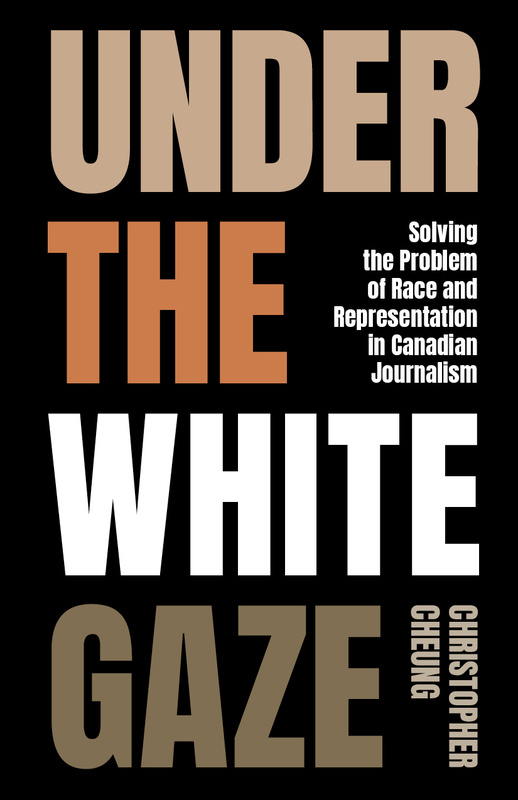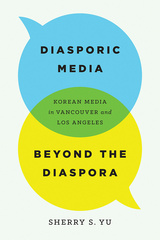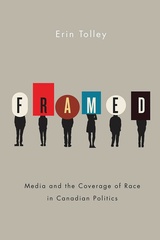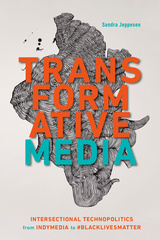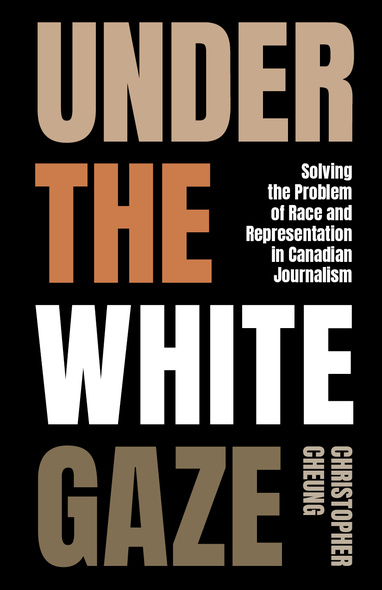
Under the White Gaze
Solving the Problem of Race and Representation in Canadian Journalism
Canada’s multiculturalism stops where most newsrooms begin. Despite recent efforts to increase diversity in the media, people of colour are often presented as clichés – from freeloading immigrants to keepers of exotic culture – rather than as individuals with complex stories.
Under the White Gaze is a candid investigation into the state of race in Canadian media today that challenges the way we think about the news we read, watch, and listen to.
Instead of treating diversity like a missing ingredient – simply add one racialized reporter and the problem is solved – journalist Christopher Cheung calls on newsrooms to think critically about representation in all areas of coverage. That means recognizing that even feel-good reporting about festive foods or model minorities can perpetuate the white gaze. Examining real stories from recent years for successes or how they fall short, Cheung weighs in on what they reveal about Canada’s white gaze, and how it operates differently than America’s.
This book lays bare the critical role media plays in reflecting society back to itself. It shows why reporting on race is necessary, how the language for doing so is evolving, and why intersectionality increasingly matters in stories about race.
Deeply researched and engagingly written by a racialized reporter navigating the industry, Under the White Gaze is the perfect addition to newsrooms, journalism schools, and social science departments, and is a great read for Canadian media consumers – as well as anyone who studies or is interested in race and representation.
Christopher Cheung has quickly become one of our must-read journalists. He has reshaped the discourse on a host of social and civic issues, foregrounding groups that have been underserved by other media members. His always engaging, lucidly written new book, Under the White Gaze, serves both as a reference for new reporters seeking to navigate pitfalls in (mis)representation, and as a resource to readers who know they’re not being served by the journalism they consume but can’t quite articulate their concerns the way an insider can.
Under the White Gaze should be required reading in every journalism school and newsroom in the country. Cheung’s work is a lifeline for an industry that too often fails in its promise to explain all of Canada to all Canadians.
In Under the White Gaze, Cheung seamlessly weaves personal anecdotes, reportage, historical accounts, and literary analysis to navigate the terrain of race and representation in Canadian media. As a journalist who grew up in a multicultural Vancouver neighbourhood, Cheung details his own evolution as an emerging storyteller alongside discussions of critical race theory and industry expectations placed on journalists of colour. His writing, whipsmart and unflinching, is timely, insightful, and illuminating.
Under the White Gaze is a book that should be required reading for fresh-faced journalism students as they prepare to enter newsrooms. But veteran, sometimes cynical, journalists should also read it to remind them about why they became reporters in the first place – to tell stories about real people living desperate, complicated, and often inequitable lives.
Christopher Cheung’s book re-examines journalism by challenging the lens through which most journalists still look at the world around them: a white lens. It has important lessons for how journalism is taught, for how newsrooms are managed, and for how news is consumed.
Christopher Cheung is a staff reporter at one of Canada’s earliest online news sources, the Tyee. Previously at Metro and the Vancouver Courier, he is highly acclaimed for his reporting on urban culture, inequality, and life in Metro Vancouver’s diasporas. Among his many honours are two Jack Websters, BC’s top journalism awards. He holds a Master of Journalism from UBC.
Gazing Behind
1 Of Gaps and Gazes
2 Of Darlings and Deviants
3 Of Deliciousness and Damage
4 Of Intersections and Identity
5 Of Maps and Monsters
6 Of Silence and Shutdowns
7 Of Words and Worry
Gazing Beyond
Notes; Bibliography; Index

